Will Cork Float for Your Bathroom Floor?
http://decor-ideas.org 11/10/2013 19:10 Decor Ideas
There are a lot of factors to consider when picking out a material for the bathroom floor: price, aesthetic, installation, maintenance, sustainability and more. Cork is an especially hotly debated material choice for bathrooms. Although it's often used for its natural mildew resistance, there are different opinions about its ability to stand up to a wet environment. Here you'll learn all about the pros, cons and cost factors of cork flooring, to help you decide if it's a good fit for your bathroom. Could this sleek, environmentally friendly material work for you?
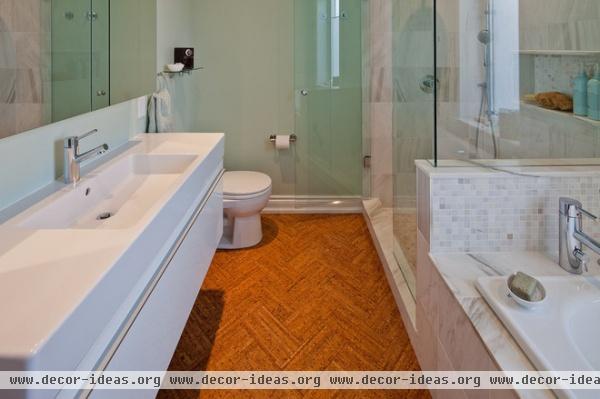
The basics: Best known for its sustainability and comfort, cork can be installed as a click-together floating floor or as glue-down tiles. Both types are available in a variety of colors and patterns.
AJ Minite of Siena Flooring Designs loves using cork in the bathroom. "For bathroom installations either click system or glue-down cork flooring is acceptable," Minite says. "Our cork comes prefinished with three coats of water-based polyurethane, but for bathrooms we'd recommend adding two more coats after installation and a bead of silicone around the perimeter to keep out excess water."
Cost: Cork flooring ranges in price from $3 to $12 per square foot on average. While installation can be a DIY project for those with home improvement DIY experience, a professional installation can help seal up all the potential seams and cracks around tubs, vanities and toilets. Professional installation can add approximately $3 to $5 per square foot.
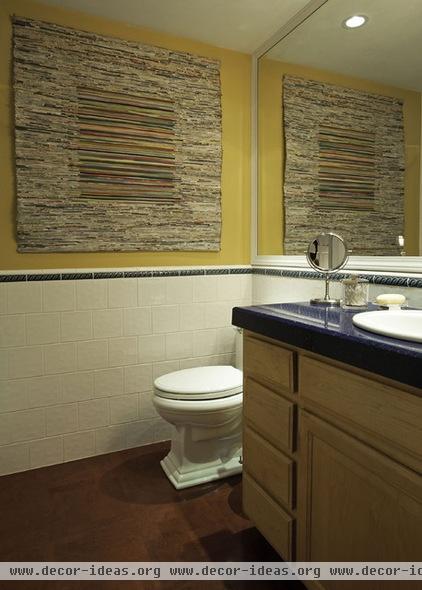
Advantages: Cork is filled with air cells that make it naturally soft underfoot, which means it's great for bare feet. It's also naturally resistant to moisture, mold, mildew and bacteria, and won't feel cold (like tile) underfoot. Despite its soft feel, it can be as durable as hardwood when finished correctly.
Disadvantages: Make sure your cork has been approved for use in a high-moisture space, and confirm all the ins and outs of the warranty with your manufacturer. Have your installer seal the cork with a low-VOC finish to ensure that no water can seep through seams or cracks.
Cork is water resistant but not waterproof. It works well in bathrooms but can suffer damage when exposed to standing water for too long. Cork floors can plump, warp and distort if water penetrates a seam.
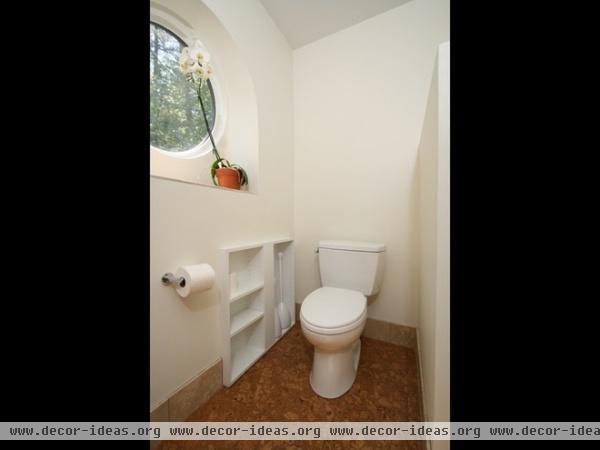
Environmental impact: Cork flooring takes the gold in sustainability. Made from the bark of the cork oak tree, it can be safely harvested approximately every 10 years without harming the tree. Plus, the cork grows back over time. Cork is also an excellent choice for a home environment, since it's antimicrobial, hypoallergenic, biodegradable and recyclable. Cork has excellent insulation properties too, ensuring minimal heat loss.
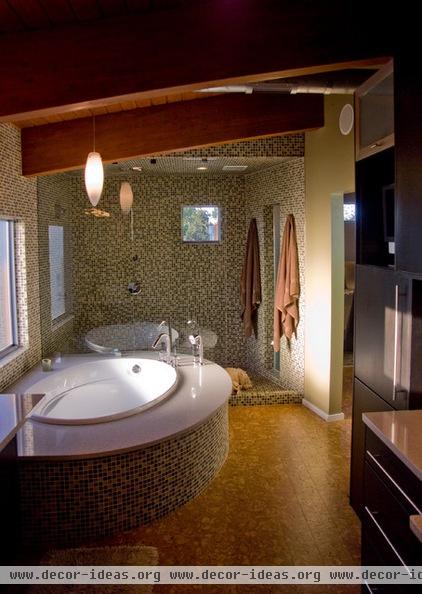
Maintenance: Consider laying down a bath mat near your tub and shower to soak up any possible standing water after a bath or shower. Regular sweeping and dry mopping should take care of everyday maintenance. Typically, cork flooring has a polyurethane topcoat that protects it from minor spills and wear and tear. This poly finish needs to be reapplied every couple of years to ensure that the floor will remain impervious to moisture.
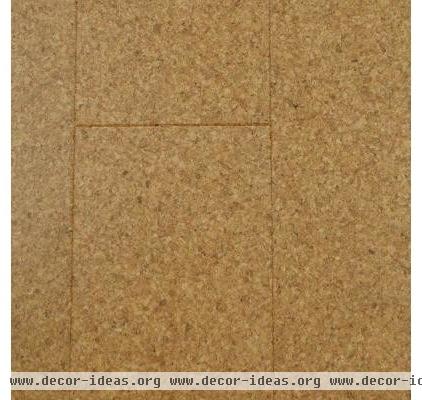
Natural Plank Cork Flooring - $43.46 Are you a fan of cork flooring in the bathroom? Share your thoughts in the Comments section below.
More: Discover the Unstoppable Advantages of Cork in the Home
Related Articles Recommended












